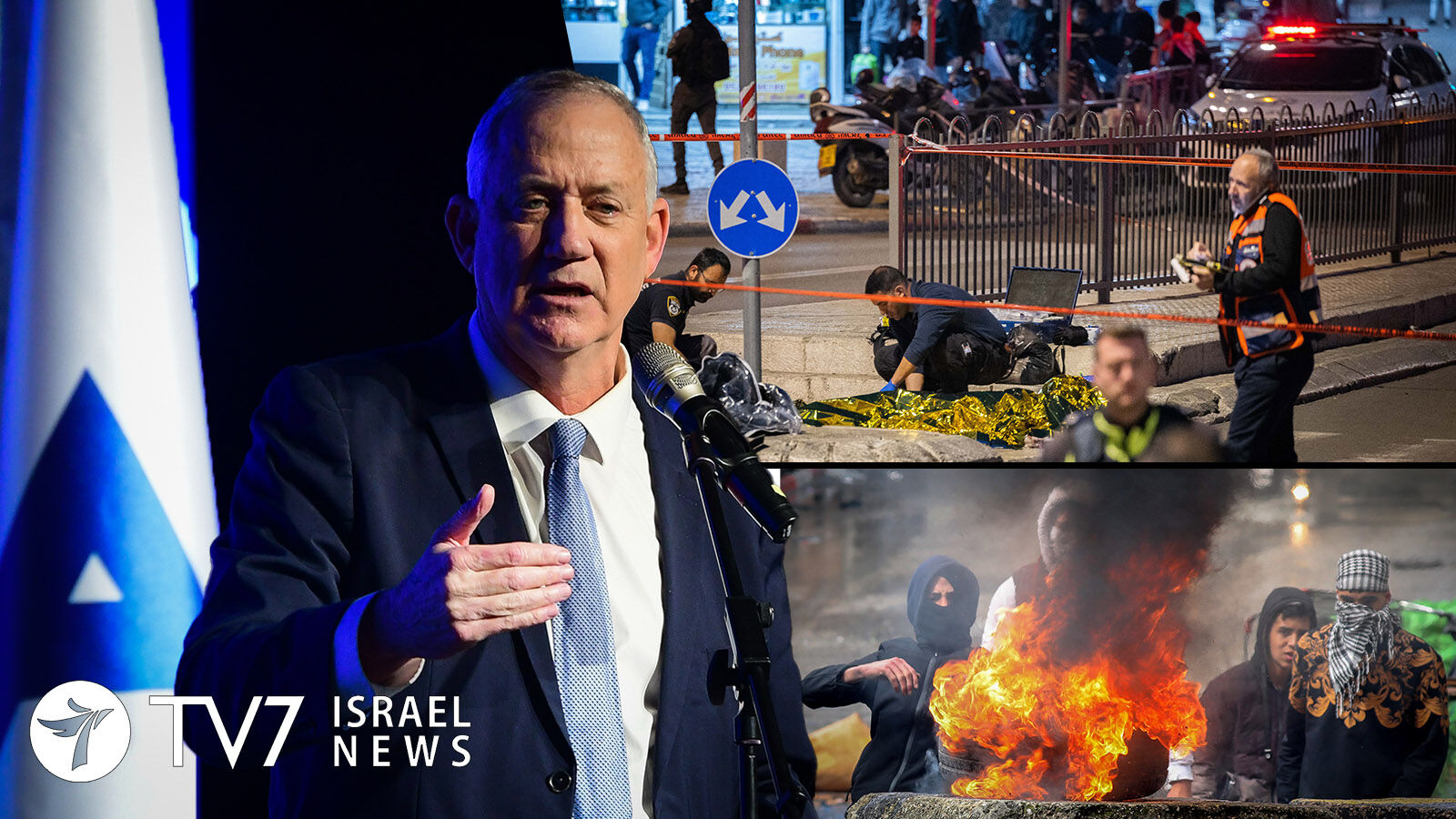The presentation by Israeli Foreign Minister Yair Lapid and Defense Minister Benny Gantz for the foreign ambassadors serving in the country comes against the backdrop of a wave of terror.
By Erin Viner
The briefing focused on the current wave of terrorism in Israel as well as major security issues on the agenda.
At the start of their remarks, however, both the Foreign and Defense Ministers emphasized Israel’s condemnation of the 24 February Russian invasion of Ukraine. They also addressed Israel’s humanitarian aid for Ukrainians, as well as efforts by Prime Minister Naftali Bennett to end the conflict.
Minister Lapid also reiterated allegations that Moscow’s armed forces committed war crimes during the fighting.
Regarding the new wave of Arab terror that killed eleven people in Israel since 22 March, Minister Gantz told the ambassadors that the security establishment is “taking the measures necessary to prevent terror attacks, including intelligence, preemptive operations and defense.”
Gantz also spoke of the raid to capture a terror cell in Jenin following two days of surveillance which he said was conducted in “precise operation with minimal harm to the routine lives of others,” according to a statement TV7 obtained from the Israeli Ministry of Defense (IMoD).
Minister Gantz went on to stress the importance of taking preemptive action against online incitement to violence.
After unveiling “confidence-building measures” Jerusalem has undertaken with the Palestinian Authority (PA) since the May 2021 Operation Guardian of the Walls” conflict with Palestinian terror groups in Gaza, Israel’s top defense official called on the international community to invest in economic and civilian programs for the PA essential to ensuring stability in the area.
Turning to the fast advancement of Iran’s nuclear development, Defense Minister Gantz warned that the Islamic Republic has enriched its uranium stockpile to 50KG at 60% purity since August 2021.
“We are running against time,” he said, underscoring that “the international community must insist on a solid agreement” during efforts to revive the 2015 Joint Comprehensive Plan of Action (JCPOA) to prevent Tehran from acquiring nuclear weapons.
“And if no agreement is reached, we must activate ‘Plan B’ because there is no vacuum,” he cautioned, in apparent refence to a potential Israeli strike against Iran’s nuclear facilities.
“We see the power of a united international community, it is possible. Therefore, if needed, we can move forward with economic pressure, intel, diplomatic pressure, power projection, and regional counterterrorism efforts,” he added.
During his turn at the podium, Minister Lapid provided the diplomatic corps with an overview of the recent Israeli-Arab Negev Summit he convened, emphasizing the importance of regional security and economic cooperation.
“The Negev Summit is the right model for regional cooperation to fight terror and strengthen diplomatic ties which will guarantee regional stability,” he stated.
Jerusalem’s top diplomat went on to outline steps taken by the government to ensure freedom of worship to all religions during the current and upcoming holidays.
Christian observance of Easter is on 17 April this year, while the Jewish festival of Passover will be celebrated 12-22 April. Both holidays coincide with the Muslim holy month of Ramadan, which began 2 April and is set to conclude 2 May.
